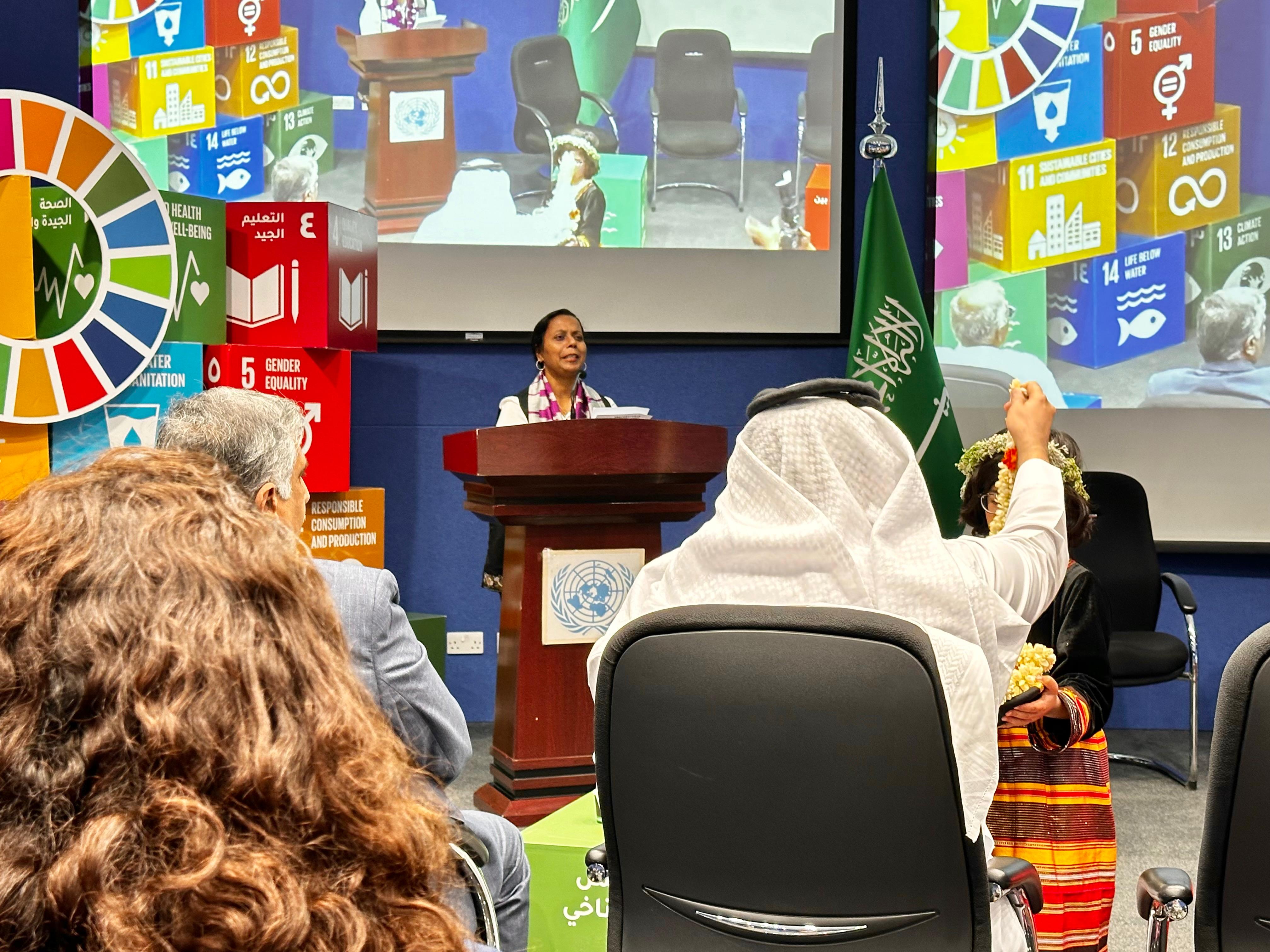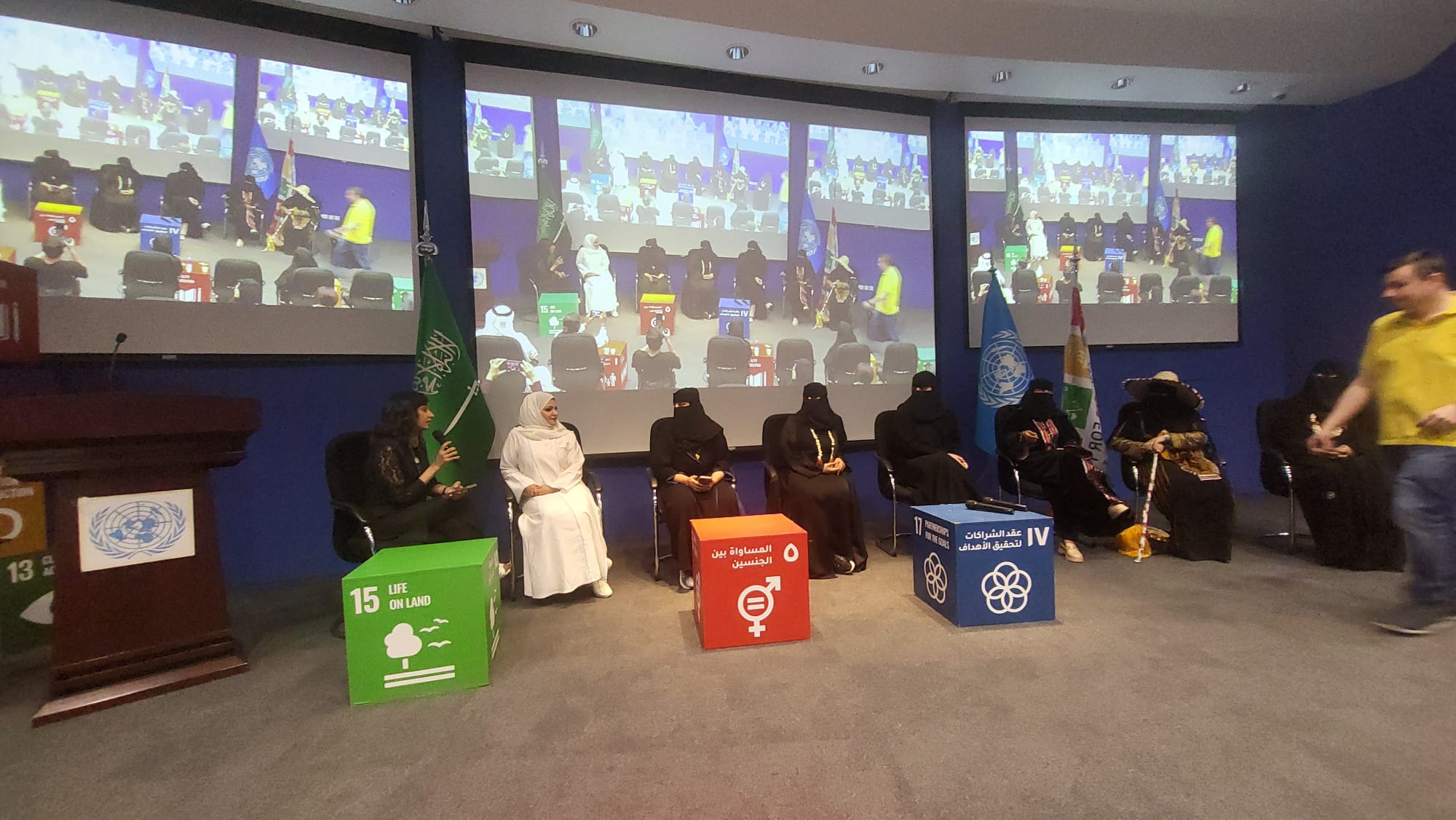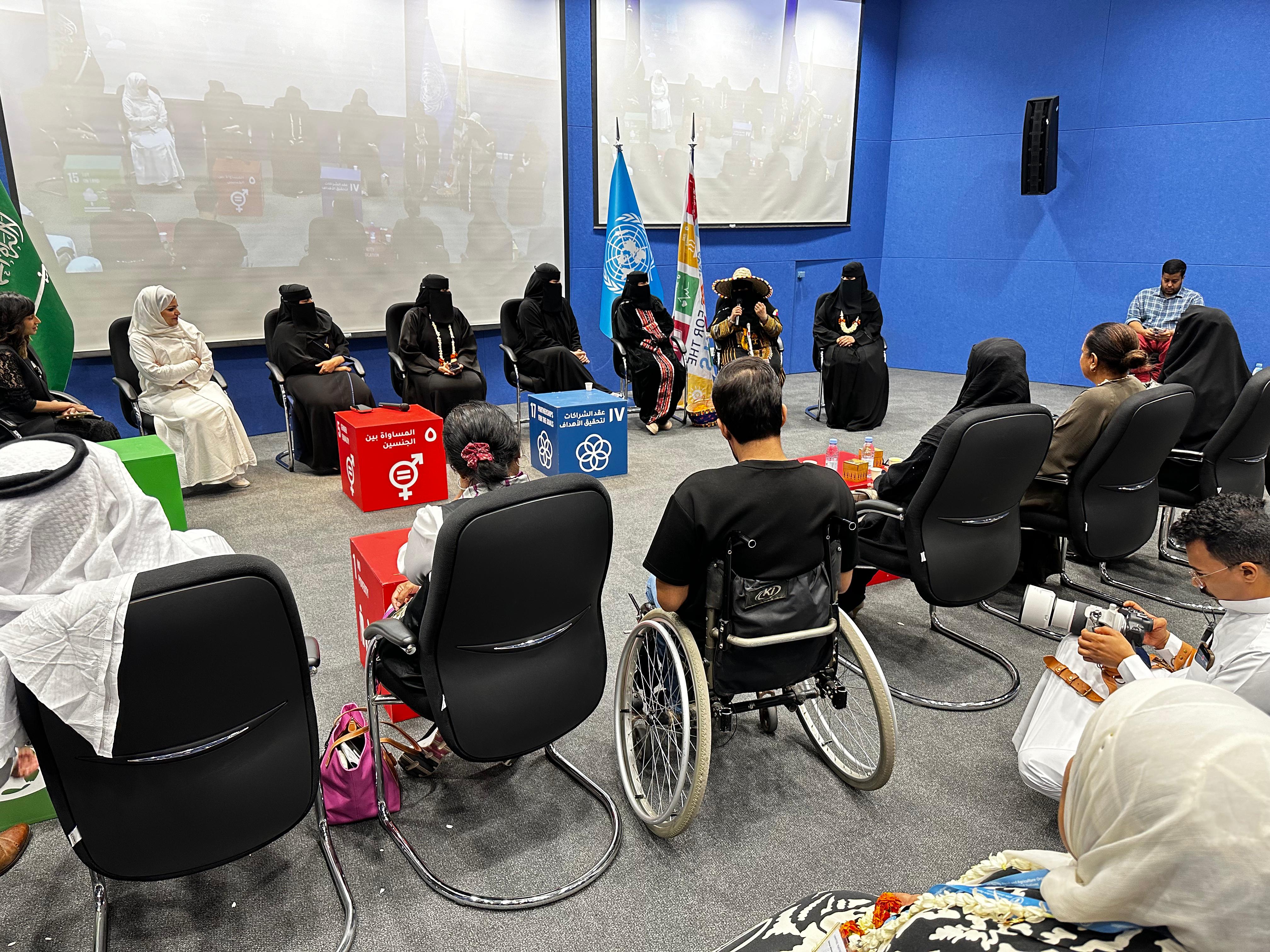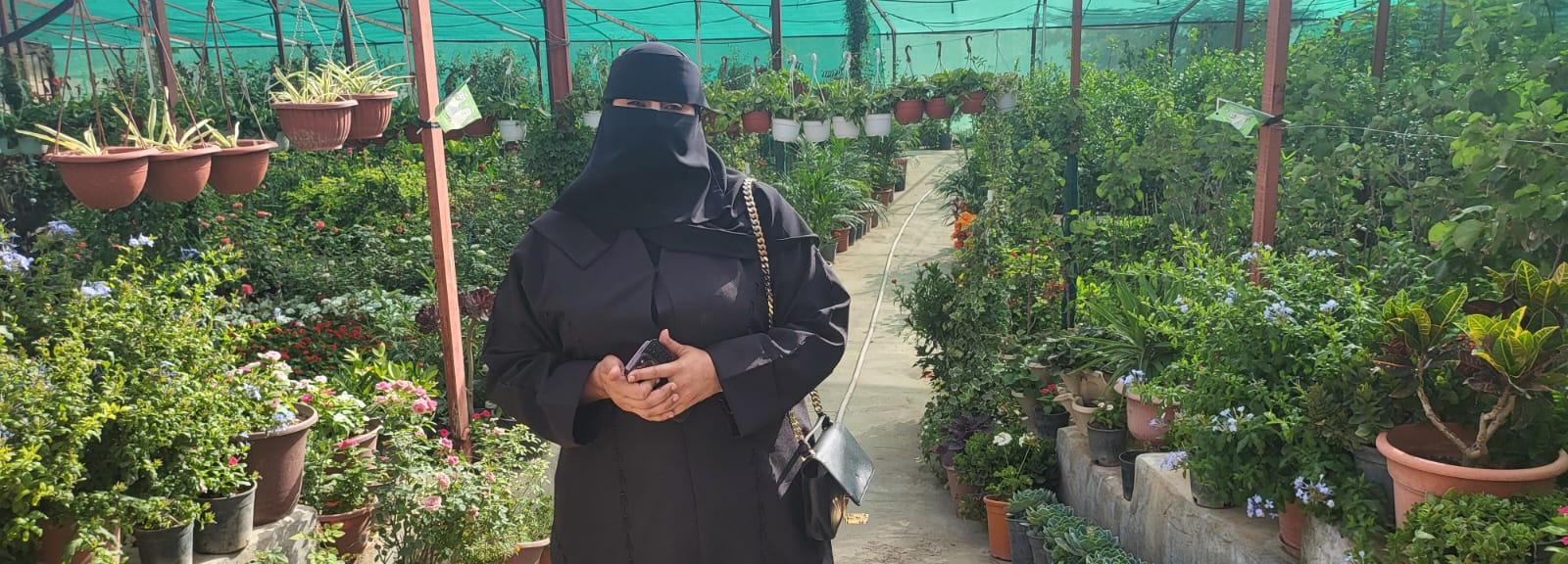
Towards a Sustainable Future: Empowering rural women in Saudi Arabia through sustainable rural agriculture
17/10/2024
Women have a central role and are at the heart of agrifood systems, driving transformation and advancing economic, environmental, and social progress required for sustainable development. Women’s empowerment is not only beneficial to individuals and but also crucial for the well-being of families, and rural communities, as well as for enhancing overall economic productivity. Many women from rural areas lack the skills needed to pursue livelihoods, decent work, and productive employment. The government in Saudi Arabia is keenly promoting the economic empowerment of rural women to accelerate progress.
The transformative role of rural women in sustainable development
With technical support from FAO, the Ministry of Water Environment and Agriculture (MEWA) of Saudi Arabia is implementing the Sustainable Rural Agriculture Development (SRAD) programme. The program aims to strengthen capacities, improve rural livelihoods and increase the income of smallholders while conserving vital natural resources. It covers seven value chains - coffee, rose, rainfed cereals, sub-tropical fruits, honeybees, fisheries, and livestock- and works with various stakeholders in the countryside across 11 regions. The purpose is to reinvigorate the agrifood systems by promoting diversification, introducing modern practices, technologies and innovations, increasing skills and capacities, strengthening rural agriculture institutions, and supporting youth and women-led agricultural enterprises to shift from traditional to commercial systems.
FAO Saudi Arabia, with partners, showcased the transformative role of rural women in sustainable agricultural development while marking International Rural Women’s Day on 15 October 2024. The event was organized in collaboration with Saudi REEF and the UN Development Programme at the UN House under the theme "Empowering for a Sustainable Future." The event showcased the positive changes in the Saudi countryside through increased agricultural production, value addition, and income generation opportunities for rural families and communities.


Six role models of small-scale producers from the rural countryside, Ms. Azza, Ms. Suad, Ms. Aziza, Ms. Sarah, and Ms. Basma, who are based in different regions of Saudi Arabia, were invited to speak about their experiences. They shared experiences, such as starting small enterprises, making bee wax products, jasmine and rose products, and local handicrafts, and becoming successful in their ventures. Previously, these women were trained in value addition within the Warfa Initiative developed under the SRAD project. The initiative promotes agri-preneurship among women and focuses on value-addition efforts. The women at the event discussed their entrepreneurship and showcased several income-generating initiatives such as successful plant nursery businesses; bee wax products like soaps, perfumes and other cosmetics; production of traditional handicrafts and jewellery; traditional recipes using local millets and grains, among others
They shared how they had used their skills to support other women. For example, Ms Azza is a model agripreneur and a trendsetter in the plant nursery sector from Baljurashi; Al Baha trained twelve women to establish and manage their own nurseries. The curriculum, developed by FAO and MEWA, covered essential topics such as plant growth, pest control, and business management, providing participants with the practical knowledge required for a plant nursery business startup. Over three months, they learned about soil, water management, the environment, pests, and diseases, and they gained essential knowledge of business management tools and techniques. Azza gladly expressed her gratitude, saying, “I am very satisfied. Thanks to FAO and MEWA, I could share my knowledge of plant nursery business with my sisters.”

With newfound horticulture skills and a staunch support network, participants are motivated to establish their plant nursery businesses. The initiative has equipped them with practical skills and proposes innovative business ideas as a sense of community and collaboration.
The Power of Peer-to-Peer Learning and Networking
The contributions of the rural women entrepreneurs at the International Rural Women’s Day event brought visibility to rural Saudi products and the massive potential for transformation. “With ongoing support from governments and investment agencies, these women can be empowered to make significant contributions to their communities and the agricultural landscape of Saudi Arabia” said Dr. Kakoli Ghosh, CTA of the SRAD Programme.
It also made it clear that empowering rural women is essential for individual success as well as to achieve the broader goal of sustainable development in Saudi Arabia and with the transformation of the agrifood systems for better production, better nutrition, a better environment, and a better life for all, ensuring a brighter future.
